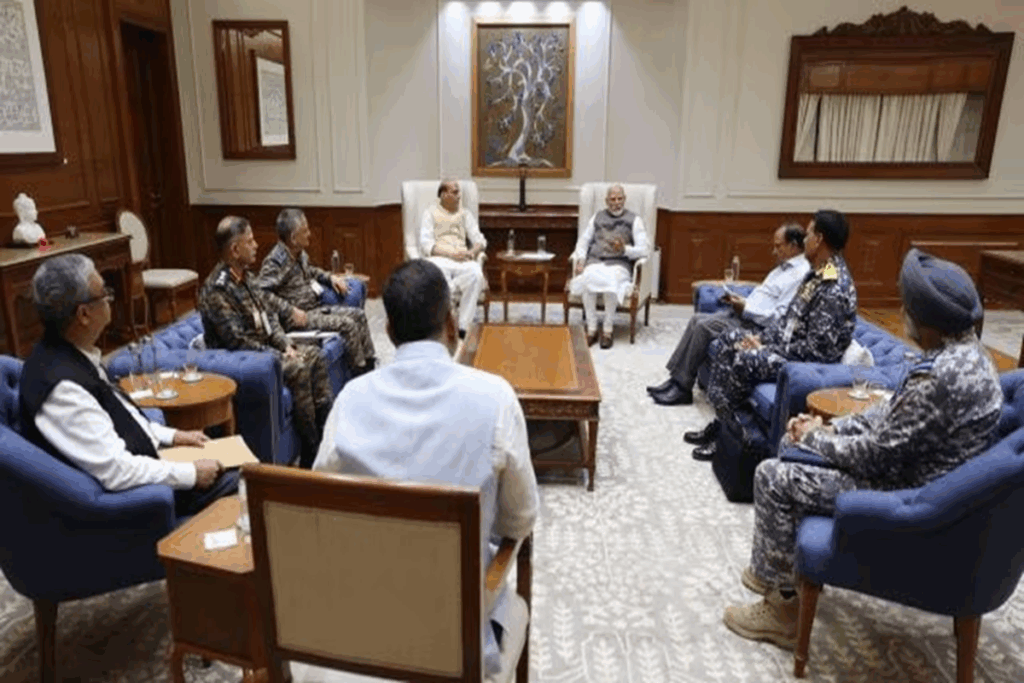Following Pakistan’s thwarted drone and missile strikes, PM Modi chaired a critical meeting with defense leaders to review India’s security. The Defence Ministry reaffirmed India’s readiness to protect its sovereignty and citizens.
By Our Political Bureau
New Delhi: In response to Pakistan’s failed attempts to strike Indian territory with drones and missiles on the night of May 8, 2025, Prime Minister Narendra Modi convened a high-level meeting with top defense officials to assess national security. The meeting, attended by Defence Minister Rajnath Singh, National Security Advisor Ajit Doval, and service chiefs, focused on India’s operational preparedness and inter-ministerial coordination. The Defence Ministry emphasized that India remains “fully prepared to defend its sovereignty and ensure the safety of its people,” following the successful neutralization of Pakistani attacks by India’s air defense systems.
Pakistan’s Failed Aggression: Pakistan launched multiple drone and missile attacks targeting civilian and military sites in northern and western India, including areas near Srinagar, Jammu, and Punjab. India’s S-400 air defense systems and integrated counter-UAS grid effectively intercepted these threats, preventing any significant damage. The Indian Army reported explosions near key installations like Srinagar International Airport and Awantipora airbase, marking the first drone incursions in Kashmir since May 7. Colonel Sofia Qureshi, during a briefing, condemned Pakistan’s “blatant attempt to violate India’s sovereignty,” highlighting the use of high-speed missiles and kamikaze drones.
India’s Robust Response: Under Operation Sindoor, India conducted precision strikes on Pakistani airbases, including Noor Khan, Murid, and Rafiqui, causing significant damage to military infrastructure. These actions followed Pakistan’s escalation after the April 22 Pahalgam terror attack, which killed 26 civilians. Foreign Secretary Vikram Misri clarified that India’s response was measured, targeting terror camps and military assets without breaching Pakistan’s airspace. The operation, named by PM Modi to honor the widows of Pahalgam, showcased tri-service coordination and advanced weaponry like Rafale jets and SCALP missiles.
Strengthening National Security: PM Modi’s meeting underscored the need for heightened vigilance and robust civil defense measures. The Prime Minister directed ministries to secure critical infrastructure and coordinate with state governments. Mock drills were conducted nationwide, and airports in northern India, including Jammu and Srinagar, were temporarily closed. The government also debunked Pakistan’s false claims of destroying India’s S-400 system, with Misri urging citizens to ignore misinformation. India’s actions have garnered bipartisan support, with leaders like Rahul Gandhi and Sharad Pawar praising the armed forces’ precision and resolve.
India’s decisive response to Pakistan’s aggression has reinforced its commitment to national security. With PM Modi at the helm, the nation stands united, ready to counter any threat while pursuing de-escalation if Pakistan reciprocates.


